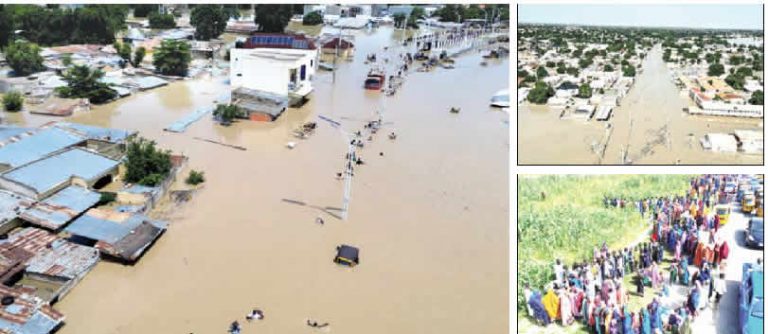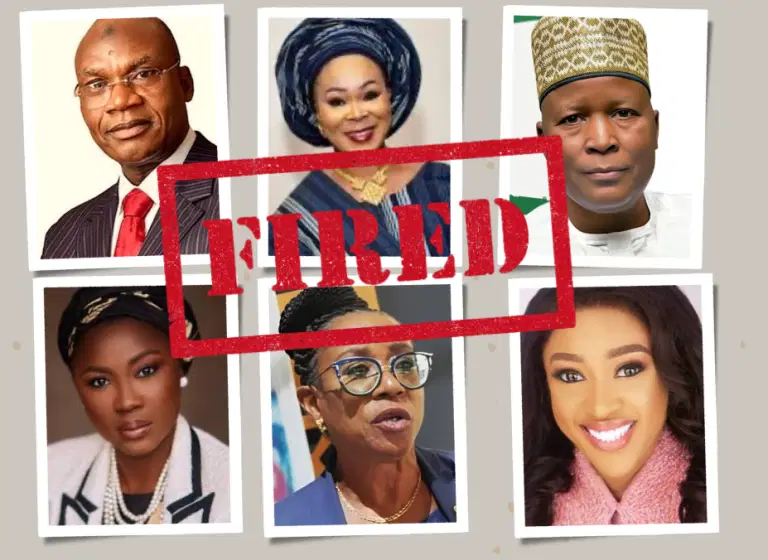Revisit Oronsaye, 2014 Confab, Uwais, El-Rufai reports, stakeholders urge FG
The Patriots, Okorie, Unagha, Kachikwu, Adebayo, Ameh, Osuntokun, Ogbonnia speak
By Clifford Ndujihe
IF the recommendations of various committees, panels and conferences set up by the Federal Government over the years had been implemented, Nigeria would have fared better socio-economically.
This was the view of a host of eminent citizens and leaders.
Since the advent of the Fourth Republic in May 1999, the Federal Government has set up a litany of committees, which came up with tons of recommendations to address the country’s worsening socio-economic, security, political and developmental challenges. A few of the recommendations were implemented in breach. Most of the recommendations were ignored and are now gathering dust in the archives.
Notable reports that have remained on the front burner include the Stephen Oronsaye’s Report, Muhammadu Uwais’ Report, and the 2014 National Conference recommendations. There is also the report of a committee raised by the ruling All Progressives Congress, APC, which was chaired by Malam Nasir el-Rufai.
Key recommendations
Some of the recommendations that have not been implemented include merging of ministries and agencies of government to cut the cost of governance, creating state police, restructuring the polity and devolving power to the federating units, establishment of electoral offences tribunal, power rotation, part time legislature, and resolution of election petitions before swearing in of those elected.
Among those, who rued the non-implementation of the reports include Founder of the All Progressives Grand Alliance, APGA and former Presidential Candidate, Chief Chekwas Okorie; Secretary of The Patriots, Comrade Wale Okunniyi; former Chairman of the Inter-Party Advisory Council, IPAC, Dr Yunusa Tanko; and former Presidential Candidate and National Secretary of the Coalition of United Political Parties, CUPP, Chief Peter Ameh.
Others are National Publicity Secretary of Ohanaeze Ndigbo, Dr Alex Ogbonnia; 2023 Presidential Candidate of the Social Democratic Parties, SDP, Prince Adewole Adebayo, former Presidential Spokesman and Director-General of the Obi-Datti 2023 Presidential Campaign Council, Chief Akin Osuntokun; former Presidential aspirant and a chieftain of the National Democratic Coaition, NADECO, Alhaji Mumakhai Unagha; and 2023 Presidential Candidate of the African Democratic Congress, ADC, Mr Dumebi Kachikwu.
Nigeria would’ve fared better – The Patriots
Speaking on the issue, the Secretary of The Patriots, Okunniyi, said “the country would have made some progress in its politics and democratic governance if the reports of the 2014 National Confab, Oronsaye Panel, Uwais Electoral Committee etc had been implemented but I think not totally though.”
He continued: “Without the popular democratic constitutional reconfiguration of the governance system and architecture of Nigeria back to true democratic federalism and people’s constitutional democracy from the current military imposed unitary governance system foisted through the 1999 constitution there will not be progress.
“So, what is critical for the country’s democracy now is how to take back the ownership of the constitution to Nigerian citizens.”
No guarantee – Adebayo
Asked if things would have been better with the implementation of the reports, Prince Adebayo tersely said, “not guaranteed” because “they represent parts but not the whole of the problems.”
On what he thought should be done to resolve the whole problem, he said, “character, ethics and integrity.”
Panels’ve become political tools to buy time – Kachikwu
On his part, Mr Dumebi Kachikwu lamented that “in the last 40 years, Nigeria as a nation has never implemented any report. Panels and committees have become a political tool to buy time. Setting up committees has become a way to assuage situations.
“Absolutely, things would have been better if the reports were implemented because some of the reports made sense but we don’t implement reports and we don’t hold anybody responsible for anything. It has always been my turn and our turn and we allow things to get worse and worse.”
Uwais report would’ve averted 2023 brigandage- Osuntokun, Tanko
On his part, Chief Osuntokun said: “Nigeria would have fared a lot better if the reports were implemented. Implementation of the 2014 confab report would, at the irreducible minimum, result in a measure of devolution and decentralisation of powers. Oronsaye report would have addressed the issue of the bloated and corrupt civil service and unsustainable recurrent expenditure. The Uwais report would have helped in preempting the electoral brigandage of the 2023 general elections.”
Dr Yunusa Tanko shared Osuntokun’s thoughts, saying: “It is possible we would have started getting it right because some of these reports and suggestions by both the Oronsaye and Uwais are channeled towards having a standard cost reduction in terms of management of government establishments. That of Uwais dealt with the issue of how we manage our electoral system.
“If such reports had been implemented, we would end up with getting a better part of our nationhood. So, I concur that things would have been better if the Oronsaye and Uwais reports were implemented as at when due.”
How we paid for not implementing reports — Ameh, CUPP scribe
In the words of Chief Ameh, the failure to implement the laudable 2014 Confab recommendations, Oronsaye report, Uwais report, etc, has negatively impacted our country.
According to him: “Addressing these issues is crucial to optimizing governance costs and promoting sustainable development in Nigeria.
“The failure remains a missed opportunity for Nigeria that is the wholesale discarding of the three undoubtedly incisive and salutary Reports.
“High governance costs can disproportionately benefit those in power like what has been happening in Nigeria, exacerbating income inequality.
Excessive spending can encourage inefficiency and waste in government operations; and can divert funds from essential public services like healthcare, education, and infrastructure.
“If the Oronsaye Report was implemented, no fewer than 102 heads of agencies and parastatals will lose their jobs
“The committee also estimated that if the committee’s recommendation was implemented, the government would be saving over N862 billion between 2012 and 2015
“President Bola Tinubu has ordered the full implementation of the Oronsaye report but failed woefully to back his impulsive and irrational decision with actionable plan of implementation. His continued refusal to follow through with his decision is hurting the Nigerian economy,
“If Nigeria had proper steps in the direction of implementation, the recommendations of the 2014 National Conference, Oronsaye Report, Uwais Report, and other similar initiatives could have brought significant benefits to Nigeria.
Here are some potential positive outcomes: Improved governance and accountability; Enhanced federalism and devolution of powers; Reduced corruption and increased transparency; More effective resource allocation and management; Strengthened institutions and rule of law; Increased citizen participation and engagement; Better management of diversity and inclusivity; Improved economic management and development; Enhanced national security and stability; and More effective public service delivery.”
2014 Confab report, best way forward — Chekwas Okorie
Asked the same question, Chief Okorie said: “I have always held the view that the way to go for a better and more acceptable Nigerian union is for the Tinubu administration to muster the political will to implement the 2014 National Conference report. The Jonathan administration spent a whopping N7b from our common patrimony to convene and sponsor the 2014 confab. The overwhelming majority of Nigerians expressed great optimism and high expectations that Nigeria was finally on its way to real nationalism that would be built on a true federal structure of government.
“It was unprecedented for our country leaders to unanimously agree on about 660 recommendations based on consensus in spite of Nigeria’s heterogeneity. A draft national constitution was also produced, which captured most of what was contained in the confab report.
“It remains a tragedy that President Jonathan, whose government sponsored the confab, lacked the courage to take the patriotic step of implementing its recommendations. I vehemently recommend that President Tinubu should summon the courage to sponsor an executive bill for a national referendum to the National Assembly to be able to present the National Constitution derived from the 2014 confab to eligible Nigerians for ratification.
“I am surprised that the implementation of the Oronsaye report is still being delayed in spite of the initial posturing of the Tinubu administration, which is beginning to look like a mere grandstanding. The presidency should speak up on the true state of the Oronsaye report. I was part of the presidential committee on electoral reform chaired by then Vice President Goodluck Jonathan that made recommendations that were passed on to the Uwais committee for incorporation into the main report.
“As sound as the Uwais report, maybe, it was short of firm recommendations on the application of technology in the conduct of elections. I am of the view that the National Assembly may wish to consider the high points of the Uwais report in its ongoing amendment of the Electoral Act with emphasis on the mandatory transmission of election results direct from the polling units to the relevant INEC electronic platforms.
We ignored reports to our peril– Ogbonnia, Ohanaeze publicity scribe
Speaking in like manner, Dr Ogbonnia said “the major problem with the leadership in Nigeria is the inability to make the right choice.
“The 2014 Confab, Oronsaye and Uwais were well thought out reports which the Nigerian leadership has ignored to its own peril. It’s unfortunate.
“Similarly, there are thousands of research findings in the Masters and Doctorate degrees programmes in the Nigerian universities, but of course, they all end in the trash cans. What then is the purpose of education and research?
From the time of Muhammadu Buhari to the present, Nigerians have asked for the implementation of the 2014 Confab to no avail.
However, it doesn’t require a soothsayer to know that any dysfunctional system must attain its elastic limit, a point where it must surely break. President Bola Tinubu has two options, either to implement the 2014 Confab report for a better Nigeria or to allow the dysfunctional dynamic continue to an eventual collapse.”
Unagha concurs with Adebayo
To Alhaji Unagha, probably Nigeria might have done well if the reports were implemented.
“I said probably because of the level of corruption in the country. and insincerity on the part of those in authority. When these committees were set up and inaugurated, I knew from the onset that they would not work, will be a mere a jamboree and academic exercises.
“We cannot keep wasting our economic resources in the name of committees whose report will not be implemented. My appeal to president Tinubu is that these reports should be revisited for implementation.
“What has been the bane of the reports is ethno-religious and tribal factors. Worst of all, we pretend to be one Nigeria yet we are divided on the basis of two things I made mention above, hence we are not developing as a Nation.
“Now, Nigeria is 64 years, nothing seems to be working because of sabotage in authority, .that is why some of us are clamouring for restructuring of the country to enable the parts that are willing to develop to do so and those that want to remain stagnant to do so. “Some parts of Nigeria that are very willing to move on are being pulled back by others. So, President Tinubu should re-awake these reports and the 2014 confab report if Nigeria will be better.”





